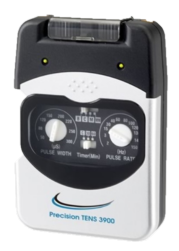SCIENTIFIC STUDIES
Opioid based medications have long been known to be highly addictive, and although they work well in reducing pain, the long term usage usually results in an increased dosage tolerance, requiring the patient to take higher doses more frequently to reduce the pain. As well, the use of opioid based medications prevents the patient from operating vehicles or operating heavy machinery.
Non-selective Nonsteroidal Anti-Inflammatory Drugs (NSAIDS), such as Ibuprofen, and Cox-2 selective drugs, such as Bextra, Celebrex, and Vioxx, are associated with a significant risk of serious gastrointestinal events. Recently, concerns have also been raised about NSAIDS and potential cardiovascular toxicity. The deleterious gastrointestinal effects, and increased risk of cardiovascular adverse events from the use of NSAIDS and Cox-2 selective drugs, are cause for concern to the consuming public because of the frequency and seriousness of side effects.
Recent scientific studies addressing these concerns are provided for your review:
An Evidence-Based Update on Nonsteroidal Anti-Inflammatory Drugs.
The Role of Non-Opioid Analgesic Techniques in the Management of Pain After Ambulatory Surgery.
This section of the Food and Drug Administration website also provides the public with a wealth of information about NSAIDS and Cox-2 selective drugs:
Wikipedia maintains an ever evolving list of previously approved drugs, which the FDA has now withdrawn from the market due to risks for patients taking these drugs. This link can be accessed here:
Another concern about the use of drugs is adverse side effects when two or more drugs are taken together. This is called “drug-drug interaction.” Drug-drug interactions can lead to changes in systemic exposure, resulting in variations in drug response of the co-administered drugs. For example, mixing a drug to help you sleep, such as a sedative, with a drug taken for allergies, such as an antihistamine, can make driving a car or operating heavy machinery dangerous.
In addition to co-administration of other drugs, concomitant ingestion of dietary supplements, citrus fruit, or fruit juice could also alter systemic exposure of drugs, thus leading to adverse drug reactions or loss of efficacy. This is called “drug-food/beverage interaction.” A common example would be mixing alcohol with some drugs can result in feeling tired or a slower reaction time. Another example would be the ingestion of certain foods, such as spinach, kale, or parsley, diminishing the effectiveness of a blood thinning drug such as coumadin. Eating garlic, while taking coumadin, can result in an unexpected increase in blood thinning.
Another concern is drug-condition interactions. A “drug-condition interaction” may occur when an existing medical condition makes certain drugs potentially harmful. For example, if you have high blood pressure, you could experience an unwanted reaction simply by taking a nasal decongestant.
Drug Free Pain Relief as an Alternative
Some patients suffering from chronic intractable pain can avoid the potential for a “drug-drug interaction,” a “drug-food/beverage interaction,” or a “drug-condition interaction,” by using a GEMS-TENS to eliminate potentially harmful reactions, or to reduce the dosage and frequency of certain drugs.
The American Pain Society has published an extensive study on the history, mechanism, and advantages of TENS: The Basic Science Mechanism of TENS and Clinical Implications.
There are a number of Evidence-Based Medicine (EBM) studies supporting use of a Transcutaneous Electrical Nerve Stimulator (TENS) to significantly reduce pain for many common conditions.
Recently, the National Institute of Health published a white paper addressing numerous systemic reviews, as well as randomized controlled trials (RCT), offering a concise review of the basic science mechanisms for TENS as well as an up to date critique of current clinical research for TENS. This white paper is titled, Using TENS for pain control: the state of the evidence.
BioMedCentral has published an article addressing the positive benefits of using a TENS for osteoarthritis of the knee: Short-term efficacy of physical interventions in osteoarthritic knee pain. A systematic review and meta-analysis of randomised placebo-controlled trials.
The use of TENS has also been proven to reduce the need for opioid based medications after surgery: The Role of Non-Opioid Analgesic Techniques in the Management of Pain After Ambulatory Surgery.
The use of TENS has been found to be simple and safe for the long term: Long term use of transcutaneous electrical nerve stimulation at Newcastle Pain Relief Clinic.
The International Association for the Study of Pain recently published an article addressing the benefits of TENS for chronic musculoskeletal pain: Efficacy of electrical nerve stimulation for chronic musculoskeletal pain: A meta-analysis of randomized controlled trials.
The International Association for the Study of Pain also published a study on the use of TENS to reduce muscle inflammation: Transcutaneous electrical nerve stimulation (TENS) reduces chronic hyperalgesia induced by muscle inflammation.


